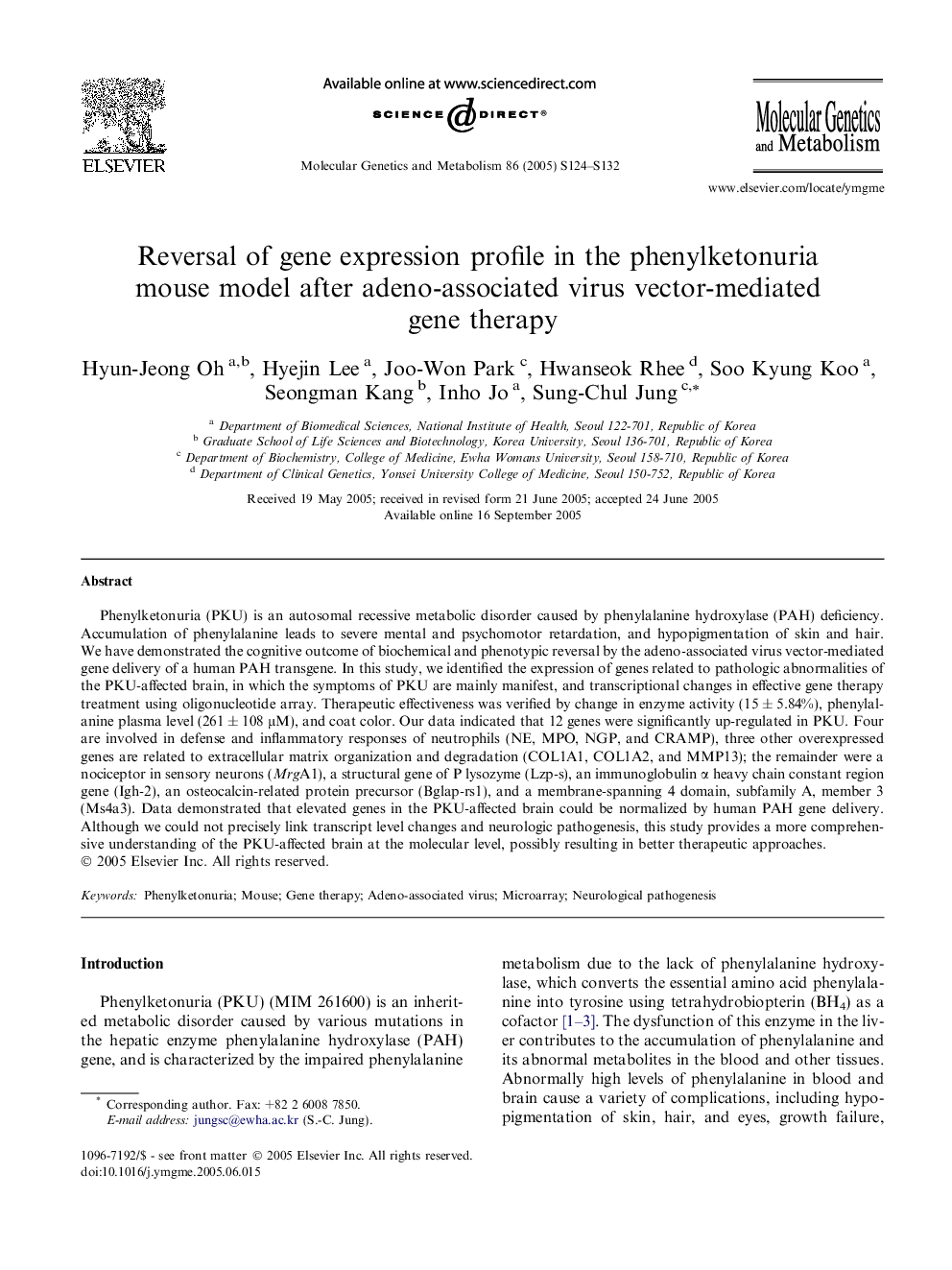| Article ID | Journal | Published Year | Pages | File Type |
|---|---|---|---|---|
| 10834054 | Molecular Genetics and Metabolism | 2005 | 9 Pages |
Abstract
Phenylketonuria (PKU) is an autosomal recessive metabolic disorder caused by phenylalanine hydroxylase (PAH) deficiency. Accumulation of phenylalanine leads to severe mental and psychomotor retardation, and hypopigmentation of skin and hair. We have demonstrated the cognitive outcome of biochemical and phenotypic reversal by the adeno-associated virus vector-mediated gene delivery of a human PAH transgene. In this study, we identified the expression of genes related to pathologic abnormalities of the PKU-affected brain, in which the symptoms of PKU are mainly manifest, and transcriptional changes in effective gene therapy treatment using oligonucleotide array. Therapeutic effectiveness was verified by change in enzyme activity (15 ± 5.84%), phenylalanine plasma level (261 ± 108 μM), and coat color. Our data indicated that 12 genes were significantly up-regulated in PKU. Four are involved in defense and inflammatory responses of neutrophils (NE, MPO, NGP, and CRAMP), three other overexpressed genes are related to extracellular matrix organization and degradation (COL1A1, COL1A2, and MMP13); the remainder were a nociceptor in sensory neurons (MrgA1), a structural gene of P lysozyme (Lzp-s), an immunoglobulin α heavy chain constant region gene (Igh-2), an osteocalcin-related protein precursor (Bglap-rs1), and a membrane-spanning 4 domain, subfamily A, member 3 (Ms4a3). Data demonstrated that elevated genes in the PKU-affected brain could be normalized by human PAH gene delivery. Although we could not precisely link transcript level changes and neurologic pathogenesis, this study provides a more comprehensive understanding of the PKU-affected brain at the molecular level, possibly resulting in better therapeutic approaches.
Related Topics
Life Sciences
Biochemistry, Genetics and Molecular Biology
Biochemistry
Authors
Hyun-Jeong Oh, Hyejin Lee, Joo-Won Park, Hwanseok Rhee, Soo Kyung Koo, Seongman Kang, Inho Jo, Sung-Chul Jung,
